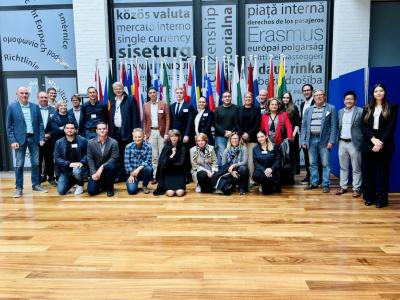
On 23 and 24 September, the Publications Office of the European Union hosted in Brussels the ELI seminar with its ELI community from around Europe.
ELI stands for ‘European Legislation Identifier’. It is a system to make legislation available online in a standardised format, so that it can be accessed, exchanged and reused across borders.
The participants were greeted by Ms Hilde Hardeman, Director-General of the Publications Office of the EU, who said: “We look forward to advancing legal interoperability across the EU, jointly with Member States, driving innovation and accessibility in European law through legal metadata.”
During the seminar, participants looked at several ELI use cases and national implementation strategies. They followed hands-on sessions focusing on identification and metadata (pillars 1 and 2 respectively), and also discussed the future of ELI and legal metadata innovation.
“ELI has evolved into a significant tool for creating a transparent, user-friendly, and interconnected legal framework across Europe,” stated Hajnal Balogh, who coordinates ELI activities at the Publications Office of the EU. “This is not just about technical solutions; it is about making our legal systems more accessible to everyone—public authorities, legal professionals, businesses, and citizens alike.”
On this occasion, the Office was thrilled to welcome Cyprus, Estonia, Latvia, Lithuania, Netherlands, and Sweden to the European Legislation Identifier (ELI) community. Their involvement marks a significant step forward in advancing legal accessibility and interoperability across Europe.
Countries that have already implemented certain ELI pillars—Belgium, Germany, Slovakia, Greece, Slovenia, and France—will continue their valuable contributions to this ongoing effort.
“In this era of rapid digital transformation, structured metadata and legal accessibility are playing an increasingly important role in managing and sharing legal data,” concluded Hajnal Balogh. “ELI stands at the forefront of addressing these challenges, and the work we do here will set the foundation for how legal information is accessed and shared across Europe in the future. Together, we are making significant strides in connecting national legal systems and building a more user-friendly European legal landscape.”
If you are interested to learn more about ELI, you can read the dedicated EUR-Lex page.
Referenced solution








